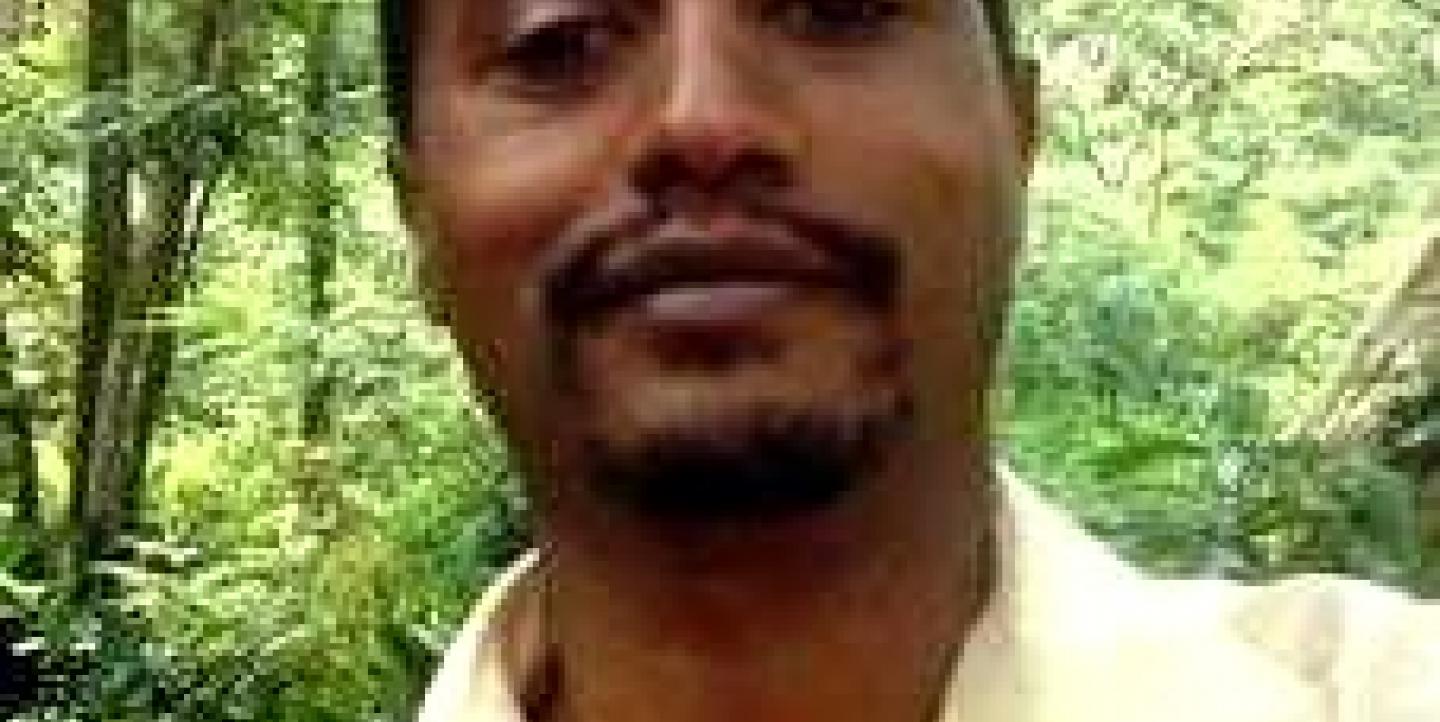Each month, IJNet features an international journalist who exemplifies the profession and has used the site to further his or her career. If you would like to be featured, email a short bio and a paragraph about how you have used IJNet here.
Andualem Sisay is an Ethiopian journalist who has used IJNet weekly for five years to find training programs and tips for better coverage. He attended a workshop on climate change advertised on our site and has since won the Excellence in Journalism Award for his environmental reporting.
IJNet: What's your current position?
Andualem Sisay: Founder and managing editor of New Business Ethiopia, an online publication in Ethiopia.
IJNet: How has IJNet helped you?
AS: It's helped me to enhance my journalism practices by providing resources on different sectors and tips on available trainings from across the world.
IJNet: How do you get your ideas for stories?
AS: My observation and curiosity is the major source of a story. In addition, I usually use social media, including IJNet opportunities. Discussions with individuals online or offline are also source ideas to my articles.
IJNet: What has been your best story or work so far? Why?
AS: Several, but from the recent ones, I like these articles most:
- Ethiopia’s Crippled Agriculture
- Speed and Corruption in Ethiopia, a Fatal Mix
- The Vicious Circle of Ethiopian Famine
- Ethiopia’s Challenge: Balancing Agriculture with Environmental Protection
The reason I like them the most is because the articles focus [on] showing gaps in government's policy implementation and regulation mechanisms. In addition, these issues (food security and agriculture, climate change and corruption) are very critical, timely and have a huge impact on the lives of millions in Ethiopia and/or abroad. The articles have gotten more readers and I also won the Excellence in Journalism Award from the Ethiopian Foreign Correspondents Association in June 2011.
IJNet: What advice would you give aspiring journalists?
AS: As usual, I say even though sometimes journalism is like playing with fire in some countries, I advise aspiring journalists to focus [more] on the issues than on personalities related to the issues. This will save us (journalists) from being biased and violating the golden rules of journalism - to be fair and balanced with accuracy and accountability.
IJNet: Are there any training programs or schools that were particularly useful to you?
AS: One of the trainings I benefited from is "Reporting on Climate Change in Africa" prepared by the Consultative Group on International Agricultural Research (CGIAR) and the Reuters Foundation.


